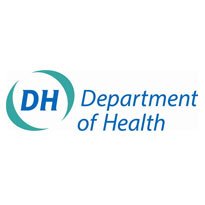The man in charge of the Department of Health’s interim deal with CSC says it wants to normalise the health IT market and expects no more than 20 trusts to take Lorenzo under the new agreement.
In an exclusive interview with EHI, the senior responsible owner for local service provider programmes at the DH, Tim Donohoe, went into never-released- before detail about the deal.
He also promised a more transparent approach moving forward.
CSC was the local service provider for the North Midlands and East of England under NPfIT, but was locked in a long renegotiation of its contract after the fourth ‘early adopter’ site for its electronic patient record system pulled out in 2011.
A revised deal, announced last September, removed the company’s exclusive right as IT provider in the NME, but promised central funding for the Lorenzo software and deployment support if a trust could develop a “robust business case” that was approved by an NME Programme Board.
The first four trusts to take Lorenzo have now been approved by the board.
Donohoe said the interim deal was legally binding and had changed the market from CSC having an exclusive hold on two thirds of NME trusts, to an open market where he expected no more than 20 trusts to sign-up for the company’s EPR.
“We’ve taken a big step to open up the market and yes there is a short term impact, but hopefully over time there will be a new equilibrium as suppliers find that trusts aren’t necessarily looking for the CSC solution,” said Donohoe.
Four or five trusts had looked closely at the deal and decided Lorenzo was not a good fit for them.
“Twenty is the magic number in my head and I’ve been telling all the other suppliers that I think this is the maximum they [CSC] can end up with,” added Donohoe.
He said the “pot of money” allocated for additional support could cover up to 22 trusts, but the funding position would be reviewed after 15 signed up.
“If we get to 22 and all the money for the additional funding has gone, trusts will be entering into further deployments of Lorenzo on the basis that there is only central funding for service and deployment.”
Donohoe emphasised that the DH was not pushing the system on trusts.
“An important thing for me is that we are not here to promote Lorenzo or to promote CSC,” he said.
“A message I’m keen to get out to trusts is that getting funding isn’t that easy, so don’t abandon procurements because you think you will get something from this deal.”
Derby Hospitals NHS Foundation Trust and Tameside Hospital NHS Foundation Trust had their business cases approved by the NME Programme Board in March and Walsall Healthcare NHS Trust and The George Eliot Hospital NHS Trust had their cases approved last week.
Donohoe said these first four trusts would be a “test bed” to make sure the deployment timescale set by CSC was doable.
“We didn’t agree with CSC’s estimations of how quickly things could be done and so we’re using the first four as a means of testing what they think they can do,” he explained.
The Ipswich Hospital NHS Trust was due to present its business case to the Programme Board last week, but the process was delayed while the case underwent a due diligence review. If approved, the trust expects to receive £14m in funding for deployment and service costs.
Donohoe said the DH wanted to make sure Lorenzo was a viable solution for trusts and that CSC did not take on more than it could handle.
“The idea that trusts would have to make a business case didn’t exist under the previous arrangement,” he said.
“That business case has to be approved both on trust board level and then again at the DH programme board level in order to make sure that the business case makes sense and that the investment is worthwhile, and secondly that CSC are not overcommitted.”
The government expected trusts to show a return on investment of around 250%.
Donohoe said that funding would vary from trust to trust and they would only be paid after costs were incurred.

